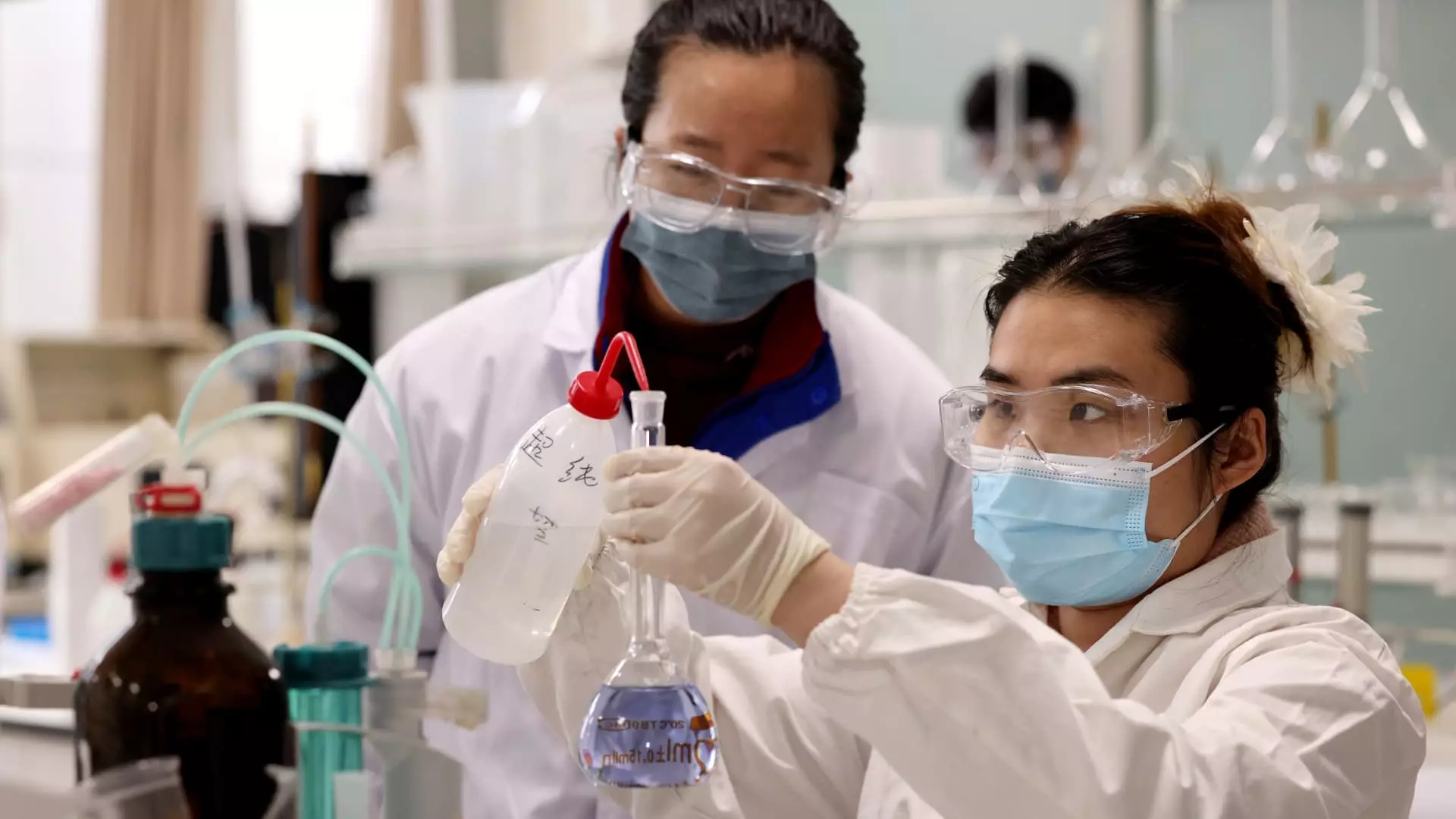As the world grows increasingly focused on the U.S.-China rivalry, a troubling yet intriguing narrative is emerging from the shadows: China’s meteoric rise in biotechnology. While geopolitical discussions often center on artificial intelligence and military influence, recent analyses illustrate that the true battleground might well be in the biosciences. According to the Harvard Belfer Center for Science and International Affairs, China’s prospects in biotechnology are so promising that it may soon eclipse American leadership in this critical sector. The report categorically states that the trajectory of biotechnology will not only redefine competitive dynamics between the superpowers but could also tilt the balance of global power itself.
In stark contrast, the U.S. is increasingly mired in a stagnant ecosystem of innovation, wrought with lengthy bureaucratic red tape that hampers progress. The U.S. National Security Commission on Emerging Biotechnology voiced urgent warnings that reflect a growing desperation; as they put it, “Our window to act is closing.” This fraught landscape underscores a profound reality: if the United States doesn’t accelerate its innovation pipeline, it risks being left behind, potentially forfeiting its esteemed status as a leader in life sciences.
China’s State-Led Approach vs. U.S. Fragmentation
A critical point of contention is the disparate strategies employed by both nations regarding biotechnology. China operates with a unified vision, empowered by state-led initiatives that have provided more than 15 years of committed support for its biotech ascent. Favorable regulations and strategic funding have enabled Chinese firms to outpace their American counterparts, many of which now languish in uncertainty due to a lack of coherent national strategy and investment.
The difference is glaring when it comes to pharmaceuticals; while America has put forward fragmented efforts to support its biotech sectors, China has emerged as a powerhouse in manufacturing and drug development. Major Western pharmaceutical companies are understandably wary, sinking billions into acquiring promising drug candidates developed in China. This illustrates a shift in how innovation is nurtured and commercialized, with emerging giants challenging the established players in the West.
Talent and Flexibility: China’s Secret Weapons
Another alarming revelation is China’s vast talent pool and its regulatory agility in the biotechnology domain. As the Harvard report notes, luring top talent—both domestic and international—has become an effortless feat for China, a contrast that highlights the struggles faced by U.S. biotech firms. The longer approval processes and research phases in the U.S. not only slow down innovation but serve as barriers for potential advancements.
Cynthia Y. Tong’s assertion regarding the flexibility of China’s regulatory regime rings particularly true as it underscores how an expedited timeline can lead to quick commercialization of ideas. American companies find themselves at a disadvantage, as bureaucratic inertia effectively throttles their potential for swift breakthroughs.
Market Dynamics and Future Implications
The landscape is further complicated by shifts in market dynamics. There’s a palpable fear that China’s burgeoning biotech sector could evolve into yet another strategic weapon for the Chinese government, akin to its stranglehold on rare earth resources. As the Biden administration grapples with how best to counteract China’s influence, bottlenecks in biopharmaceutical trade could become a veritable instrument of foreign policy, giving Beijing leverage over the U.S. and its allies.
Moreover, the future of biotech does not merely rest on borders; as global collaboration becomes critical for effective drug development, nations must navigate the complexities of differing regulations. As highlighted by industry insiders, the best biotech firms will almost certainly have to adopt a multifaceted approach that leverages resources from disparate countries to fulfill regulatory and commercialization demands.
The Critical Need for U.S. Innovation
The signs are unequivocal: The time for introspection and action is now. The United States must confront its complacency and stymied innovation with radical reform and investment strategies. With the Harvard Belfer Center advocating for a significant investment into the American biotech sector, the urgency of this situation cannot be overstated. A strategic push, coupled with collaborative spirit across governmental and private sectors, may very well determine whether American companies will emerge empowered or remain shackled by bureaucratic inertia.
In a world where biotechnology promises to transform lives, from health improvements to agricultural feasibility, leaders must act cohesively to avoid a crisis that could spiral into catastrophic proportions. The landscape of biotechnology is shifting rapidly, and unless we rally to confront this challenge, we may find ourselves on the losing end of an unprecedented global race.

